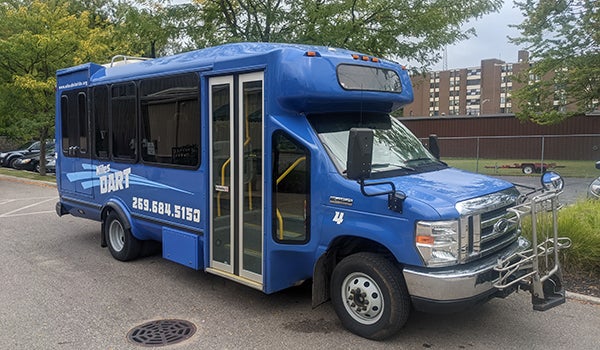Kalamazoo attorney seeks to clarify recreational marijuana statute
Published 10:07 am Thursday, December 6, 2018
CASSOPOLIS — Today is the day.
After voters approved recreational marijuana in the midterm election on Nov. 6, the substance is now officially legalized in Michigan.
For city leaders and members of law enforcement, the smoke has yet to clear as they await the Licensing and Regulatory Affairs to adopt regulatory rules for the recreational marijuana. While they wait, many city leaders are trying to decide whether they want to “opt in” or “opt out” of the law as they are required to do. The only set of guidelines they have are outlined in the Michigan Regulation and Taxation of Marihuana Act, but inconsistencies in the statute have left law enforcement and city leaders searching for answers.
On Tuesday, Clyde Robinson, a city attorney for Kalamazoo, visited Cassopolis Village Hall with the hopes of answering questions and providing clarity to the statute.
Robinson gave a presentation entitled “You Need To Know! Proposal 1 — Recreational Marijuana.” The event was hosted by the Michigan Municipal League and drew dozens of city leaders and police officers across southwest Michigan to attend.
Robinson’s presentation discussed everything from what people can and cannot do with recreational marijuana to elements like business zoning. Those in attendance were invited to ask questions.
Robinson also sought to describe where the recreational statute has inconsistencies that may leave interpretation difficult.
“It seems like every time I go through this, a new wrinkle or thought comes through: ‘how is this intended?’ or ‘how is this going to be applied by the court?’” Robinson said. “At least in my opinion, there is still some gray area that needs clarification. Hopefully, the legislature will do that and we won’t have to go through an expensive, long drawn out approach to it. Because that’s what happened with the Medical Marijuana Act.”
Robinson cited, for example, some of the statute’s language, including the alternation between the term consume and smoke. He said these words could have different definitions, leaving people questioning what is meant. Other aspects, like the fact that people 21 and over can have up to 12 plants also raises questions, because he said it is not clear whether multiple adults living together can each have 12 plants or 12 plants total.
Among those who attended were Niles city council members John DiCostanzo, Gretchen Bertschy and Jessica Nelson, as well as Mayor Nick Shelton and Community Development Director Sanya Vitale.
“It was very helpful,” DiCostanzo said. “But it still raises more questions than answers. I think we still have a lot of information required before we can put together a workable ordinance.”
On Nov. 12, Niles city council members voted 5-3 to create a resolution to “opt out” of accepting further marijuana industry in the city.
“I don’t think that there would be any point in rescinding the opt out, until we have an ordinance to replace it with,” DiCostanzo said. “But that is still an open question, I believe.”
After hearing the information Tuesday, Nelson said her goal was to disseminate what she learned.
“I think our biggest goal now is helping the public understand what each of these things means for us,” Nelson said.
While there could be up to a year before regulatory rules are instituted, Robinson predicted that Gretchen Whitmer, the newly elected governor, could push for regulatory rules within the next six months, once she officially takes office.
“I think that hopefully, people will get to their local legislatures and say loudly, ‘We need some work done on this,’” he said.
Robinson said clear regulations would make it easier to move forward.
“I just want a statute that I can work with and know the rules on, so I can advise council members, I can advise law enforcement officers: ‘Here’s what the law says. Here’s what you can and can’t do.’ But that’s not available to us right now, at least in my opinion given the way this is worded.”






